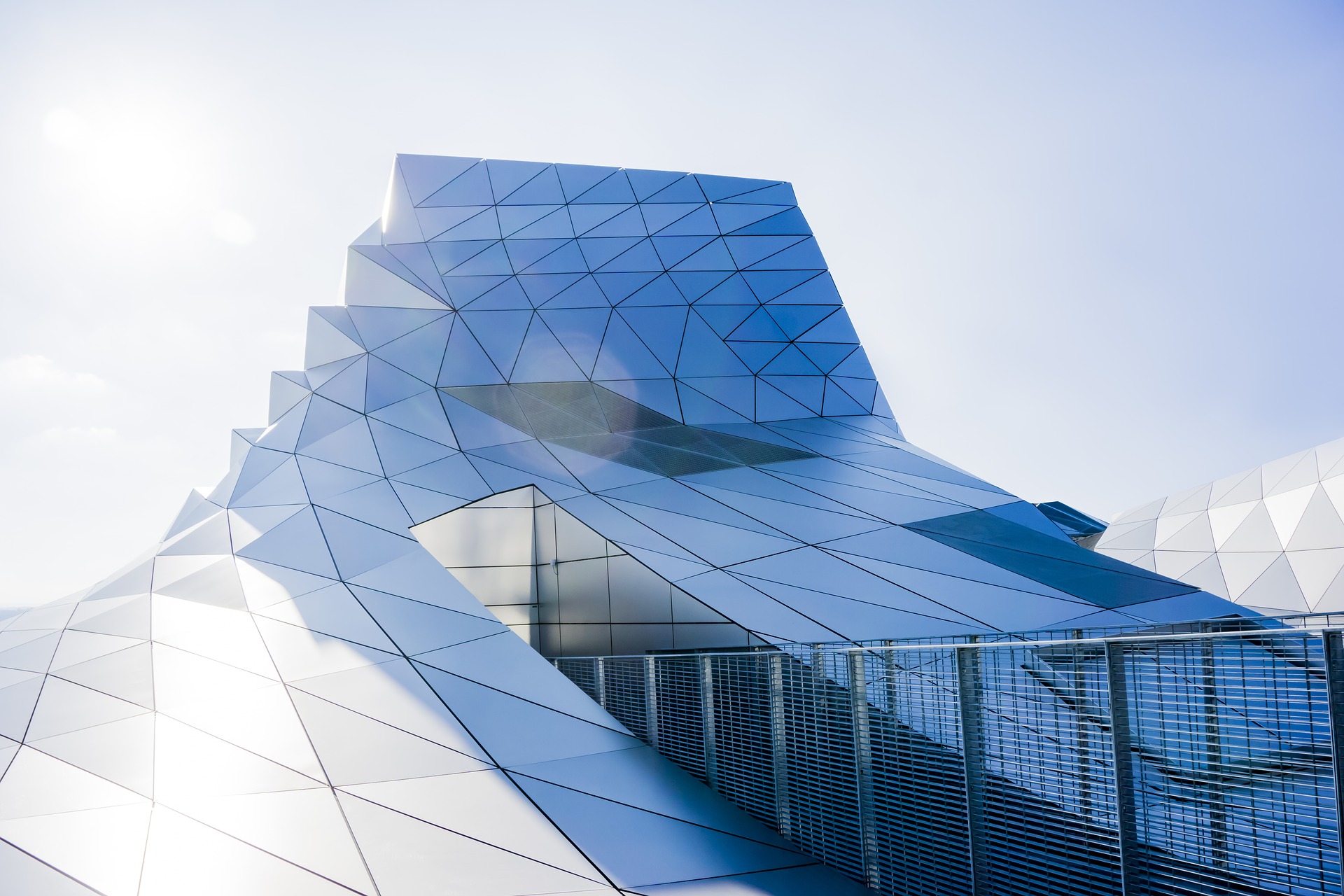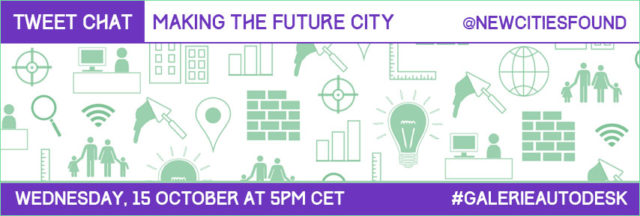
Making the Future City: A Tweet Chat
octobre 17, 2014 — Uncategorized
Who should design the city? Architects? Citizens? Can resident-led initiatives in urban design affect cities on a large scale? Would you 3D print your home? These are a few of the ideas we addressed in our ‘Making the Future City’ Tweet chat on Wednesday, October 15.
Centering around topics raised in our Making the Future City event series – hosted in Paris this month – our Tweet chat was moderated by NewCities (@newcitiesfound) in partnership with Autodesk (@Autodesk_France). We were joined by featured guests from a spectrum of fields. Together, we spent an hour analyzing and questioning the role of design in making cities more livable, dynamic and creative places.

Making the Future City #Tweet chat featured guests
Thibaut Thomas, Communication and digital strategies consultant, @thibautthomas; Alix Armour, Co-founder, Nimble Scooters, @Aliks Samuel Remy, Co-founder, WoMa Paris, @WoMa_Paris; Brooks Rainwater, Director of City Solutions and Applied Research, NLC, @BrooksRainwater; Makerversity, London @makerversity, Josephine d’Allant, Project Director at Dallant Networks, @urb_im; Global Cultural Districts Network, @GCDNet; Paul Swinney, Senior Economist at Centre for Cities, @Paul_Swinney; Studio Odile Decq, @StudioOdileDecq; Confluence, Institute for Innovation and Creative Strategies in Architecture, @Confluence_Arch; Rashiq Fataar, Director of Future Cape Town, @futurecapetown; Ekim Tan, Founder, Play the City, @play_the_city; Lynda Sharkey, Sustainable Cities Program Manager, @MapPrincess.
Making the Future City #Tweet chat highlights
Do cities need a design revolution? Who should lead it?
Yes, with more than 50% of the overall inhabitants living in cities, we need to recover, rethink and reinvent the city. @Confluence_Arch
YES! cities will house over 6.3bn people by 2050. We need intelligent, knowledge driven cities. @MapPrincess
We need to understand the economics of cities better, and how their layout affects their performance. @Paul_Swinney
It’s definitely necessary to rethink the cities to put the humans at the centre of it. @StudioOdileDecq
Everyone can be involved in designing the city, but don’t forget to bring artists to the table. @GCDNet
Has to be the people who live in it, but they need great designers, planners and thinkers to work with them @makerversity
Cities should be designed collaboratively with architects residents & political leaders creating livableplaces @BrooksRainwater
A self-built city grows always faster than the topdown designed city. Large scale is not the real worry,#incrementalradicalism could be. @play_the_city
Does the urban environment influence how we innovate & create, or vice versa?
I say both! Space matters for creativity, but we need to innovate to make space. ex use of rooftopshttp://goo.gl/NfCL24. @Aliks
Yes it does & major changes can positively influence how people think of themselves & what they are inspired to do. @futurecapetown
A huge Density of signs and transmission like in cities is an important creativity stimulation. @WoMa_Paris
Cities are laboratories where communities, designers, and planners can invent, test, critique, borrow, share, evolve. @urb_im
Tell us about an amazing architecture & design initiative that has transformed a #city or #cities
I think that in Paris, @bergesdeseine has the ability to do what the @highlinenyc has succeeded in NYC. @thibautthomas
Every new cultural equipment changes the city. @StudioOdileDecq
http://bit.ly/ItWWb5 addresses migration between urban&rural areas,lowering congestion,empowering women. @MapPrincess
I truly think the bikeshare systems around the world, especially Paris @velib have given us a new way to love our cities. @Aliks
Thank you!
Thanks to all our featured guests, and to all others that joined in on Twitter. We hope you’ll join us again for our next Tweet chats.
You can view more highlights of the discussion here on Storify.
Discover more about our Making the Future City events and follow updates on Twitter: #GalerieAutodesk.